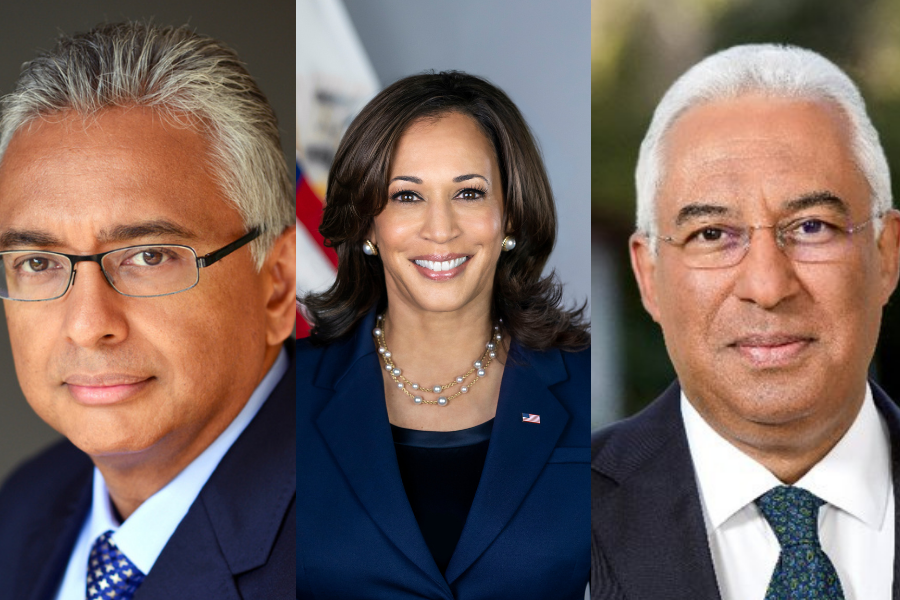Indian diaspora’s rise in the global political arena
On January 20, 2021, Kamala Harris, an American Indian, became not only the first woman of colour to take the office of the Vice President of the United States, she also was the first woman ever to hold that position, making her one of the most powerful and influential figures in the world. But she isn’t the first person from the Indian diaspora to hold a top office in their country of birth.
Recently Indiaspora, a nonprofit organisation based in the US released a list of 200 leaders around the world that belong to the Indian diaspora. Unveiling the names of influential figures in the community of 32 million people who will impact the politics and policy making of several countries all over the planet.
“It is a huge source of pride to have the first woman and first person of color as the Vice President of the world’s oldest democracy be someone of Indian heritage. We wanted to use this seminal moment on Presidents’ Day to highlight a host of others in the diaspora who also are in public service,” says Indiaspora Founder MR Rangaswami.
The list included everyone who qualifies as ‘people of Indian origin’ globally, from presidents and prime ministers to state heads and ambassadors in 15 countries. “I think it has a lot with the fact that Indian diaspora have had time to build a reputation around their community and lay deep roots in their adoptive countries,” says Divya Rastogi, a British-Indian resident of Milton Keynes, UK.
“Some are elected officials; others are appointees or civil servants. All have risen to the call for public service. Key agents in shaping politics and policy from a local to global scale, their leadership will impact generations to come,” reads the Indiaspora report.
Overall, there are five heads of states mentioned in the list including, President of Guyana, Mohamed Irfaan Ali, PM of Portugal Antonio Costa, President of Mauritius, Prithvirajsing Roopun, PM of Mauritius Pravind Jugnauth, and President of Suriname, Chandrikapersad Santokhi.
But lower down in the hierarchy, the list keeps on growing almost every week. As recently as this week, the Joe Biden administration nominated another Indian American to a middle level position. Rashad Hussain, an Indian American lawyer and diplomat, has been nominated as head of the US state department’s international religious freedom office.
“Indian diaspora is an old one, travelling for over decades, trying to survive in their adoptive countries,” says Rastogi, “now finally in the last decade or so, the community is breaking out of all the stereotypes and embracing their multi-ethnic identities instead of just trying to fit in. Which is giving them more confidence to peruse these top positions.”
The Indian community is not merely trying to survive in countries overseas anymore, but instead they are thriving, adds Rastogi.
The immigration of Indians to the West started in the 1960s, tagged the ‘brain drain’, many skilled and educated personnel left their home country in search of a better living for their families and themselves. “I remember how difficult it was to make that decision (to leave India) but I knew I had to do it for the sake of my children,” says Rashid Qureshi, a 65-year-old who had left for Britain in his mid-20s in the 1980s, “when we first came here, sure there were many British Indians in the community to make us feel at home but once you left that bubble to go mingle with the very diverse outside world, it was a different story.”
The stereotypes attached to the community has always chased them wherever his family went, whether it be his new job or his kid’s new school, says Qureshi, a PR specialist.
“So, to now see so many Indian origin people going into politics and being elected to top positions, makes me feel at ease, knowing that our young generation won’t settle for the molds that this society has tried to put them in,” Qureshi tells Media India Group.
Both Rastogi and Qureshi believe that the numbers are only likely to rise in the future. It is a growing trend, they say, a trend born out of growing representation and ambition, that will inspire the coming generation to aim higher than their predecessors, making sure that the place the Indian diaspora has carved out for itself in diverse societies around the world, won’t ever be undermined again.










